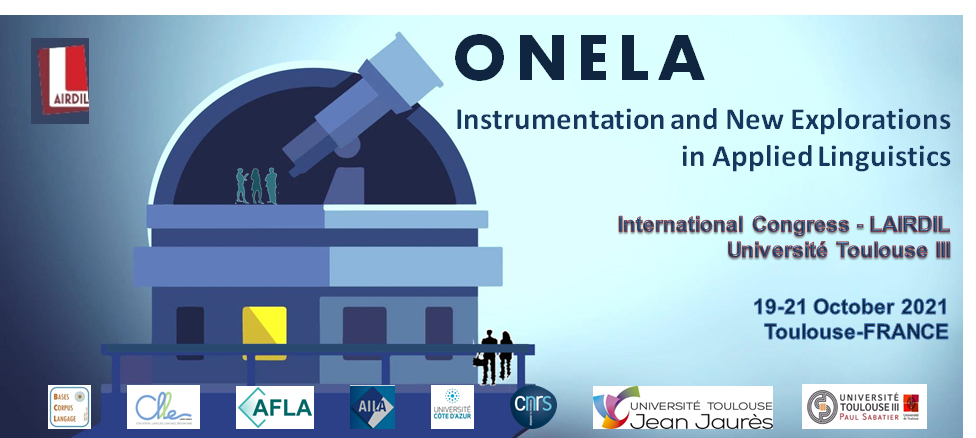
The conference > Strands1. Language or language-related observatoriesObservatories are bodies that focus on the systematic and detailed observation of both natural and social phenomena. They collect and analyse data with a view to questioning the themes that emerge from these observations. Over the past decades, observatories with a focus on language(s), or including language(s) and language use, have been set up in France and in other countries. Track 1 of ONELA 2021 will focus on linguistic issues in society as seen through the prism of such observatories. How are they defined? What different fields are they working in? How do they share their observations with other researchers? The meeting of all these stakeholders could lead to synergies, or even a convergence of views. Particular emphasis is laid on business contexts and the potential for research and education, which could arise from pooling and exploiting observatories' resources. Papers are invited on any aspect of the implementation of research in and around language observatories:
2. Language teaching and learningComputer-assisted language learning (CALL) has focused on the acquisition, learning and teaching of languages for decades. The potential of technology continues to attract researchers, teachers and stakeholders with a focus not on tools per se but rather on the mediation of technologies by theories of acquisition, learning and teaching, and by teachers and learners. Proposals for papers may tackle the challenges and opportunities presented by technologies for teachers and learners, teacher education in the area of innovative practice, or indeed perspectives for teaching and research in the digital era in the following areas:
3. Instruments and methods in corpus linguisticsWhether a corpus is general or specialised, oral or written, and whatever its purpose may be, corpus analysis today necessarily requires instruments or tools. These may be general tools: taggers, parsers, concordancers, textometric tools, tools for distributional analysis, or they may be tools for a specific task: transcription, terminology, annotation. The choice of particular instruments, the way they are used and how their results are interpreted depending on the size and nature of the corpus, constitute an important research question in its own right. The type of tool chosen can also represent a bias in the analysis which users should take into consideration. In applied linguistics where corpus studies are more and more varied, careful consideration of how tools are used and how they influence the analysis is an integral part of any study. Clear justification of the choice of particular tools contributes to the replicability of analyses and increases confidence in the scientific validity and reliability of results. Proposals in this track should take a corpus analytic perspective with a particular application in mind: terminology, planning, ontology, analysis of variation, specialised language, business communication, or forensic linguistics, for example.
4. Translation, Interpretation, WritingTranslation technologies and tools, particularly with the advent of Computer-Assisted Translation and the recent but exponential development of Machine Translation, have profoundly changed the practices of translators. Translated data is now collected, stored, reused or reusable on a large scale. What impact does this have on the type of data? How can user feedback help improve the tools? The use of corpus analysis software such as SketchEngine, once the preserve of designers of translation tools, is now spreading among translators and editors themselves. How can these new practices be described and explained? How do users view these instruments? To what extent does the evolution of tools change the very nature of the tasks of authoring, translating and editing? Proposals for Track 4 may attempt to answer these questions, or raise others. The following themes could be among those addressed:
|
| Online user: 3 | Privacy |

|
